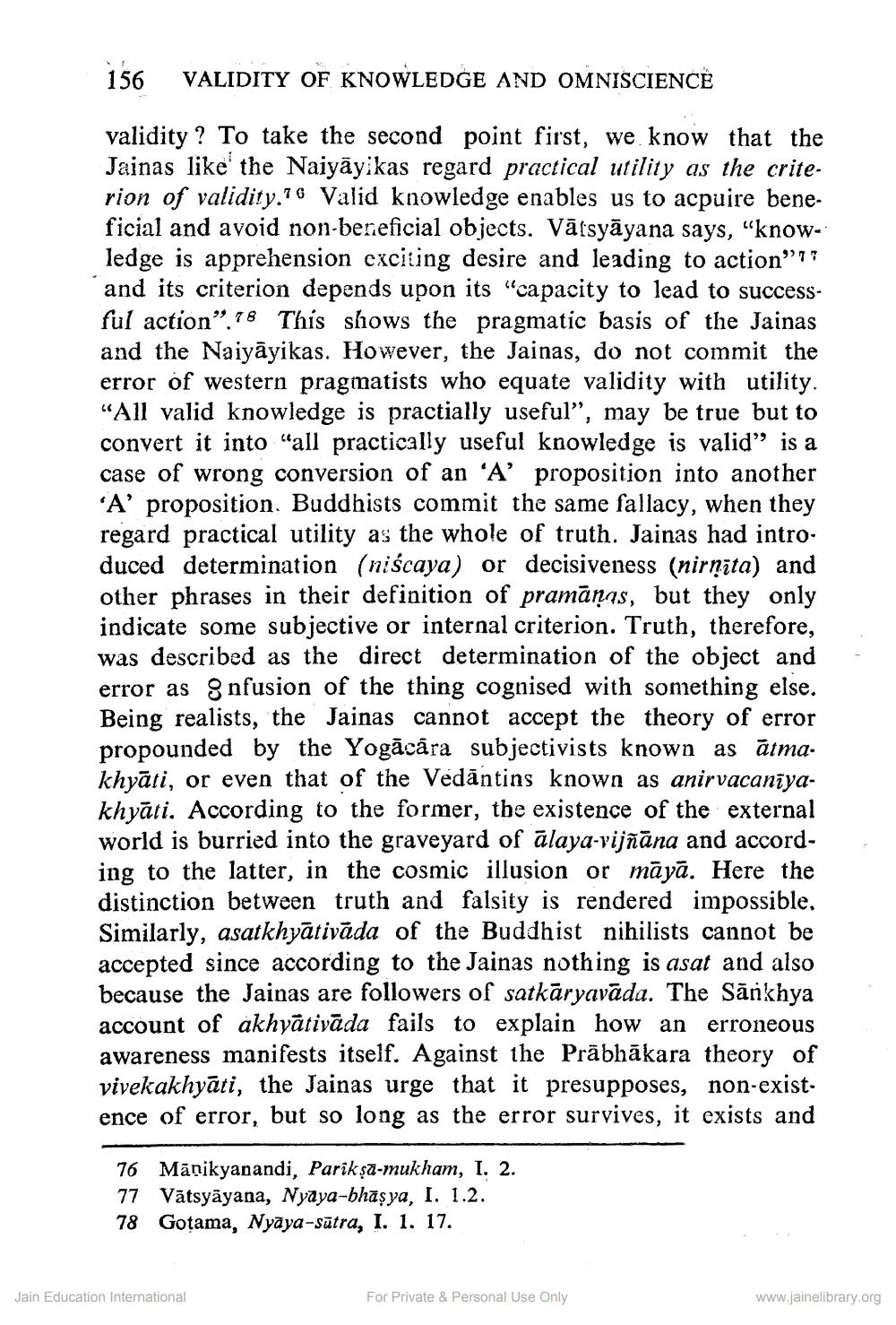________________
156
VALIDITY OF KNOWLEDGE AND OMNISCIENCE
validity? To take the second point first, we know that the Jainas like the Naiyayikas regard practical utility as the criterion of validity.76 Valid knowledge enables us to acpuire beneficial and avoid non-beneficial objects. Vātsyāyana says, "knowledge is apprehension exciting desire and leading to action" and its criterion depends upon its "capacity to lead to successful action".78 This shows the pragmatic basis of the Jainas and the Naiyayikas. However, the Jainas, do not commit the error of western pragmatists who equate validity with utility. "All valid knowledge is practially useful", may be true but to convert it into "all practically useful knowledge is valid" is a case of wrong conversion of an 'A' proposition into another 'A' proposition. Buddhists commit the same fallacy, when they regard practical utility as the whole of truth. Jainas had introduced determination (niścaya) or decisiveness (nirnīta) and other phrases in their definition of pramaņas, but they only indicate some subjective or internal criterion. Truth, therefore, was described as the direct determination of the object and error as nfusion of the thing cognised with something else. Being realists, the Jainas cannot accept the theory of error propounded by the Yogacara subjectivists known as atmakhyāti, or even that of the Vedāntins known as anirvacaniyakhyāti. According to the former, the existence of the external world is burried into the graveyard of ālaya-vijñāna and according to the latter, in the cosmic illusion or māyā. Here the distinction between truth and falsity is rendered impossible. Similarly, asatkhyātivada of the Buddhist nihilists cannot be accepted since according to the Jainas nothing is asat and also because the Jainas are followers of satkāryavāda. The Sankhya account of akhyātivāda fails to explain how an erroneous awareness manifests itself. Against the Präbhākara theory of vivekakhyāti, the Jainas urge that it presupposes, non-existence of error, but so long as the error survives, it exists and
76 Manikyanandi, Parikṣā-mukham, I. 2.
77 Vätsyāyana, Nyaya-bhāṣya, I. 1.2. 78 Gotama, Nyaya-sutra, I. 1. 17.
Jain Education International
For Private & Personal Use Only
www.jainelibrary.org




